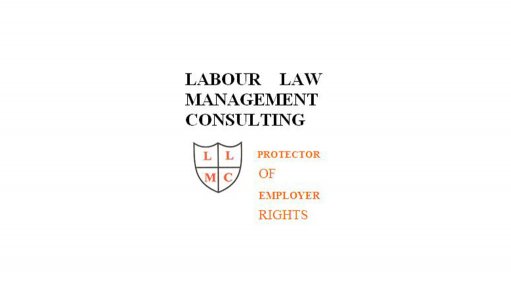
One of the most unfathomable words used in labour legislation is the word ‘reasonable’. This is because:
- When defining the concept dictionaries use terms which themselves need to be defined, so making a common understanding very difficult. For example, the Penguin English dictionary defines “reasonable” as “endowed with reason; governed by reason; sensible; not excessive; inexpensive; tolerable; just”. Each of these concepts themselves can have any number of connotations acceptable in the English language.
- The concept of reasonableness has a strong subjective element. That is, when, for example, a party makes a demand he/she tends to judge its reasonableness from the perspective of his/her own needs. For instance, if I am pressing for a salary increase then a raise of 50 % might seem reasonable to me if I have been earning a lot less than other people doing a similar job. However, if my employer is short of cash and does not want to set a precedent of giving 50% increases then a demand for such a big increase will not be reasonable to him.
The term ‘reasonable’ is used in labour law and industrial relations not only to describe pay demands but in many other areas. For example, this concept comes up when the following questions are asked:
- Can the employer prove that the employee, accused of insubordination, refused to obey a ‘reasonable’ instruction’? Why was it a reasonable instruction? What made it unreasonable to the employee?
- Was the trade union’s decision to embark on an unprocedural strike reasonable?
- Is it reasonable for an employer to hire armed security guards to evict strikers form the premises?
- Can the Labour Court, in considering the review application of a CCMA arbitration award, decide whether the arbitrator reasonably applied his/her mind to the facts of the case? Was the arbitrator’s decision to disallow certain evidence a reasonable one?
- Was the employer’s decision to dismiss an alcoholic employee fair and reasonable under the circumstances or would a ‘reasonable’ employer have sent the employee for treatment?
- Was it reasonable for the employee involved in retrenchment consultations to refuse the employer’s offer of a transfer to another branch?
Another place in labour law where the elusive term, ‘reasonable’ appears is in section 186(1)(b) of the Labour Relations Act (LRA) which says that the meaning of dismissal includes the situation where, “an employee reasonably expected the employer to renew a fixed term contract of employment on the same or similar terms but the employer offered to renew it on less favourable terms, or did not renew it.”
In the case of Scholtz and Others vs Dynamic Labour Brokers the CCMA held that the employer’s decision not to renew the fixed-term contracts of some of its employees was an unfair dismissal. This was because the arbitrator believed that the employees had a reasonable expectation that their contracts would be renewed. The arbitrator’s view was based on the facts that:
- The employer did renew the contracts of some employees doing the same work as the applicants in the case. This showed that there was work available after the expiry of the contracts and that it was therefore reasonable to expect a renewal
- Those employees whose employment was terminated were chosen at random.
In the case of Auf der Heyde vs University of Cape Town (2000, 8 BLLR 877) the Labour Court advanced a definition of the concept of “reasonable expectation”. The Court defined it as, “an equity criterion, ensuring relief to a party on the basis of fairness in circumstances where the strict principles of the law would not foresee a remedy”. I interpret this judicial definition to mean that a reasonable expectation is one which entitles the holder to win an award based not on a piece of legislation but on the fairness of the circumstances surrounding the expectation. While this definition may act as useful guideline to legislators it is not useful to the average employer because it is circular in nature.
I prefer to define the concept of ‘reasonableness’ as, “a situation, decision or viewpoint based on objective thinking, the facts of each case and a balance between the rights and legitimate needs of the parties concerned.” As in the Scholz case cited above, the decision is based on rational thought and the facts presented rather than on subjective needs or problems.
To attend LLMC's 9 May 2014 seminar in Johannesburg on RETRENCHMENT, EMPLOYMENT EQUITY AND THE FOUR 2014 LABOUR LAW AMENDMENTS please contact Ronni at ronni@labourlawadvice.co.za or on 0845217492 or (011) 782-3066.
Written by lvan lsraelstam, Chief Executive of Labour Law Management Consulting. He may be contacted on (011) 888-7944 or 0828522973 or on e-mail address: ivan@labourlawadvice.co.za. Web address: www.labourlawadvice.co.za.
This article first appeared in The Star.